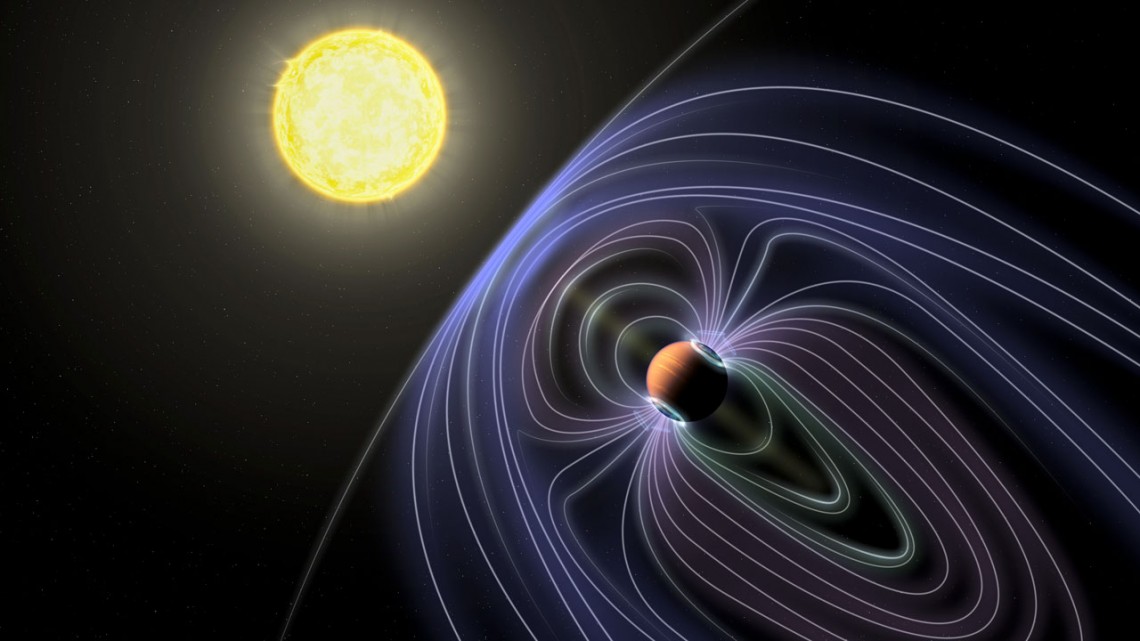Scientists think they've detected radio emissions from an alien world
Scientists may have detected radio emissions from a planet orbiting a star beyond our sun for the first time.
The astronomers behind the new research used a radio telescope in the Netherlands to study three different stars known to host exoplanets. The researchers compared what they saw to observations of Jupiter, diluted as if being seen from a star system dozens of light-years away. And one star system stood out: Tau Boötes, which contains at least one exoplanet. If the detection holds up, it could open the door to better understanding the magnetic fields of exoplanets and therefore the exoplanets themselves, the researchers hope.
"We present one of the first hints of detecting an exoplanet in the radio realm," Jake Turner, an astronomer at Cornell University and lead author of the new research, said in a statement. "We make the case for an emission by the planet itself. From the strength and polarization of the radio signal and the planet's magnetic field, it is compatible with theoretical predictions."
Related: 7 ways to discover alien planets
However, Turner and his colleagues aren't yet positive that the signal they detected really is coming from the planet, dubbed Tau Boötes b; the researchers called for additional observations of the system, which is about 51 light-years away from Earth in the constellation Boötes.
The new research actually began at Jupiter; the researchers had previously studied that planet's radio emissions and then tweaked those measurements to reflect the effect they expected closeness to the host star and distance from Earth would have had on their observations of an exoplanet.
Then, the scientists consulted observations made in 2016 and 2017 by the Low Frequency Array (LOFAR) in the Netherlands. In addition to the potential signal from Tau Boötes b, the researchers also report that they may have picked up a signal from the star Upsilon Andromedae or its planet, but that detection was even fainter than the one from Tau Boötes b.
Sign up for the Live Science daily newsletter now
Get the world’s most fascinating discoveries delivered straight to your inbox.
The researchers are interested in detecting radio emission from planets because such information may help scientists decipher what's happening in the same worlds' magnetic fields. Those magnetic fields, in turn, influence conditions on the surface of the planet — Earth's magnetic field protects the atmosphere that makes the world one we can survive, for example. Such magnetic fields can also tell scientists about other qualities of a world, like its structure and history.

But so far, studying those magnetic fields directly has been difficult for scientists to manage, despite the fact that nearly every planet in our solar system has had one at some point in its history. Hence the interest in using radio emissions as an intermediate.
"We learned from our own Jupiter what this kind of detection looks like," Turner said. "We went searching for it and we found it."
But that's just the beginning of the story, not the end of it, he emphasized, since the radio emissions could still be coming from the stars or another source instead of the planet. "There remains some uncertainty that the detected radio signal is from the planet. The need for follow-up observations is critical."
The research is described in a paper that will be published by the journal Astronomy & Astrophysics and is already available to read online.
Email Meghan Bartels at mbartels@space.com or follow her on Twitter @meghanbartels. Follow us on Twitter @Spacedotcom and on Facebook.
Meghan is a senior writer at Space.com and has more than five years' experience as a science journalist based in New York City. She joined Space.com in July 2018, with previous writing published in outlets including Newsweek and Audubon. Meghan earned an MA in science journalism from New York University and a BA in classics from Georgetown University, and in her free time she enjoys reading and visiting museums. Follow her on Twitter at @meghanbartels.










